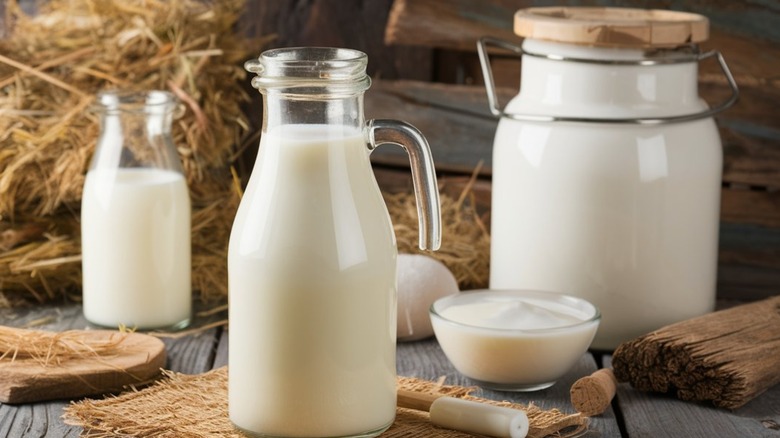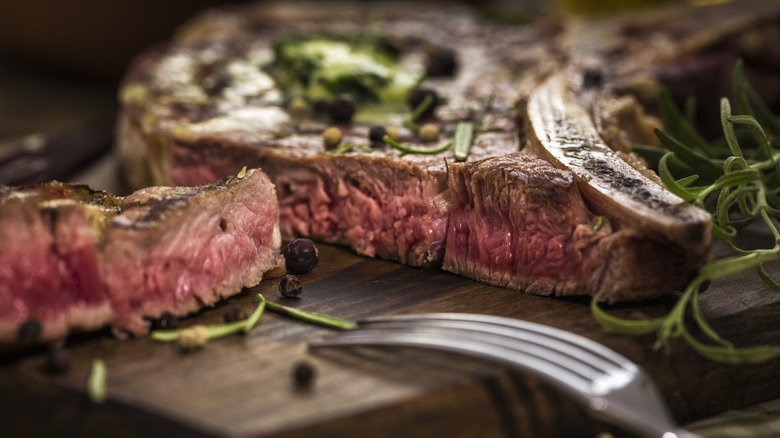Why You Should Be Soaking Your Steak In A Milk Bath
Not every steak needs a marinade. Beautifully marbled steaks like ribeye and strip steak burst with juiciness, and filet mignon is regaled for its buttery tenderness. But less-expensive and lesser-quality cuts, like flank and sirloin, need a marinade for a boost of flavor. Most steak marinades, though, have too much acid and can damage the beef's surface. But dunking a steak in whole milk for a few hours has an almost magical tenderizing effect. A milk marinade for steak isn't as weird as it might seem. Dairy products have long been used as effective meat tenderizers in Italy (milk), India (yogurt), and the southern U.S. (buttermilk), and it works because of a little science.
Beef is composed of muscle fibers that are held together by collagen. As a general rule, if the cow's muscle gets a lot of exercise — for example, the shank and shoulder — the beef will be tougher. The less-exercised muscles, like the tenderloin, will be very tender. The calcium and lactic acid in whole milk interact chemically with the muscle fibers and collagen, which results in tenderness and juiciness.
To marinate a steak in milk (or buttermilk or yogurt), put the steak in a large container with a lid or a resealable bag and cover it completely in milk. Refrigerate it for up to 12 hours but not less than 4 hours. After marinating, simply rinse the steak and pat it dry. Let the steak come to room temperature, season it, and it's ready to cook.
Milk marinade is better than other marinades
The main difference between a milk marinade and an acidic marinade is that the milk's chemical reaction does actually tenderize beef. An acidic ingredient, like lemon juice or vinegar, softens meat but just on the surface. Acidic marinades only penetrate ⅛-inch of a steak's exterior, and no matter how long you leave it soaking, the marinade will have no tenderizing effect other than turning the outside of the steak to mush. What a marinade does do is impart flavor to the steak's surface and creates a tasty crust when cooked. The anti-marinade school of thought, though, is that you'll get better results by simply seasoning the steak with salt and pepper and slicing the steak thinly against the grain.
Milk adds a natural sweetness to beef, but you could add other non-acidic marinade ingredients, like garlic or ginger, that make a great marinade for steak. Experiment with yogurt and buttermilk, both of which will add a tang to beef, or even try evaporated milk as a marinade, which, because of its concentration, doesn't need a long marination time, and its sweet profile can be bumped up with chilis or other spicy ingredients. If you're a lover of wild game meat, soaking a slab of venison in milk will add tenderness and tame its aggressive gaminess. In fact, milk is a great marinade for other meats, like chicken, lamb, and pork, and worth trying to see how it stacks up against other marinades.

